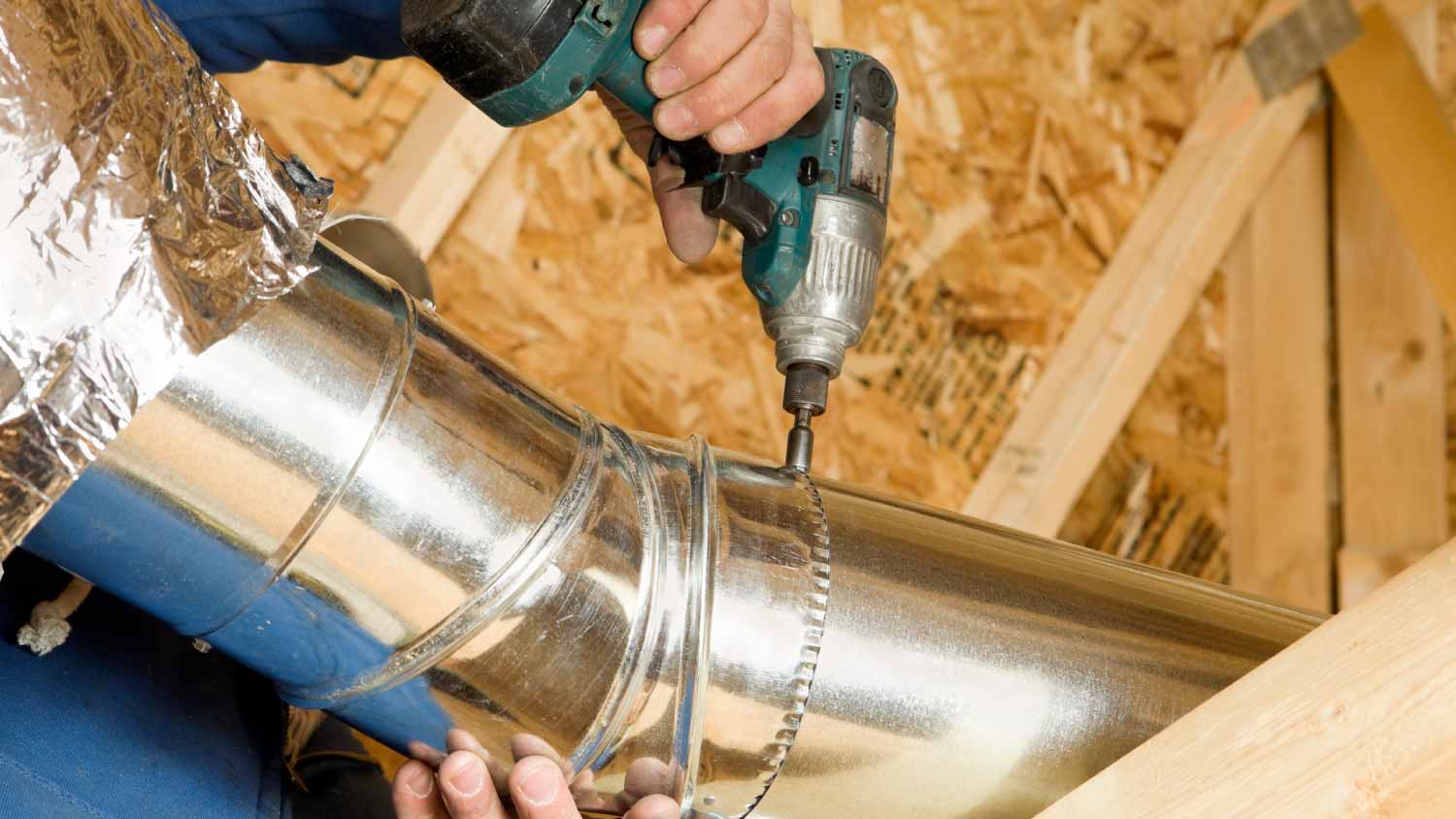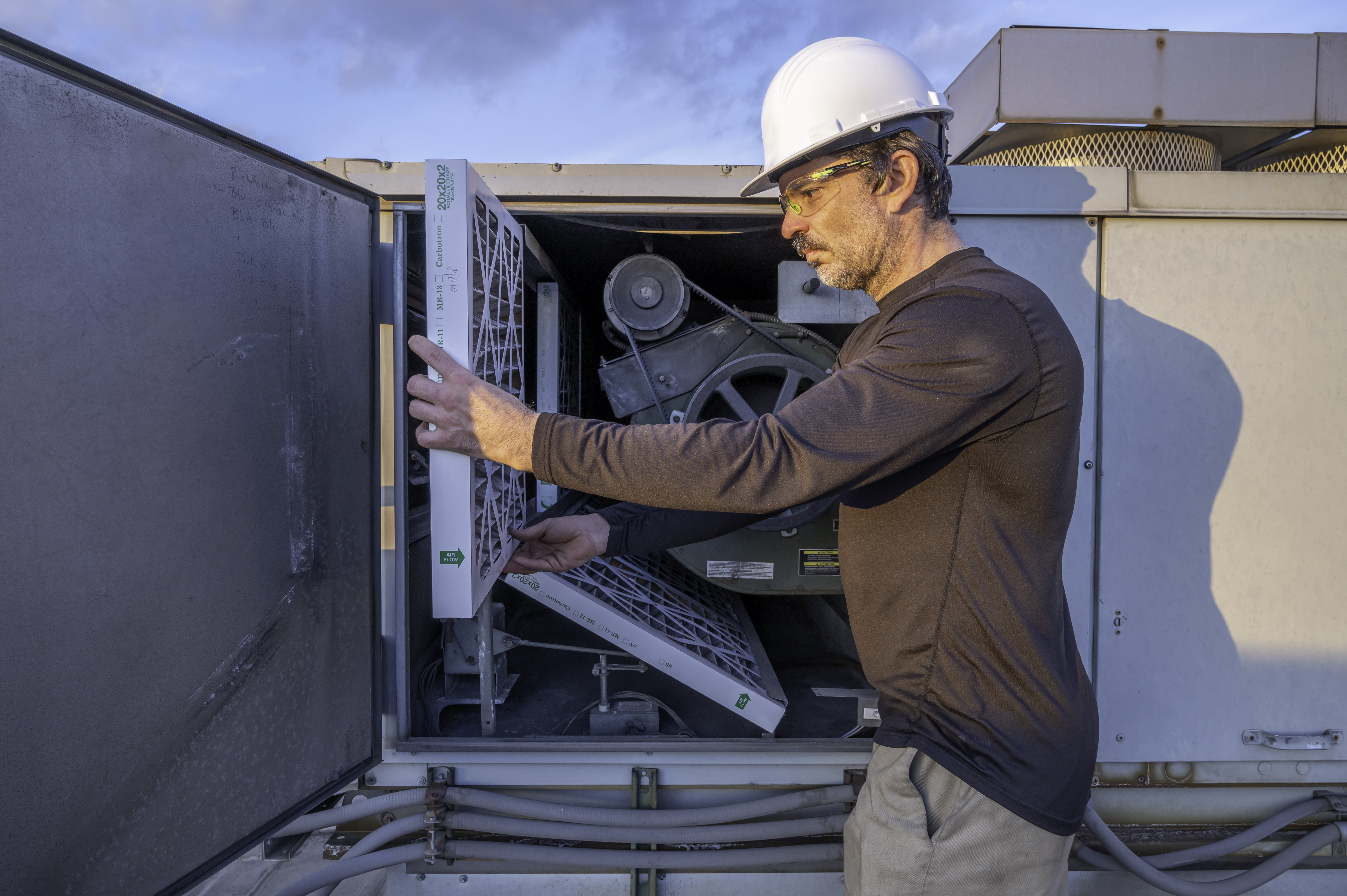
What you’ll pay in Columbus, OH, for furnace repairs depends on many factors. Here’s a breakdown of what can go wrong and the cost to fix those issues.
Metal HVAC ducts are practically musical instruments


Pops and bangs are usually from the ducts expanding and contracting.
Dirty air filters, vents, and ducts can make a lot of noise.
Professional duct inspection reveals noisy HVAC inefficiencies.
Upgrading your ductwork makes it quieter with better air quality.
Loud ductwork might take you by surprise. A popping noise could startle you while making dinner, or your latest binge-watch may get interrupted by what sounds like a loose can of tennis balls. How do you know if it’s just because of weather changes or if the noise indicates your ductwork needs repairs? If you’re wondering, “Why does my ductwork make banging noises?” we’ve got you covered.

HVAC ductwork is made of metal, and metal is extremely finicky. It expands with heat and contracts when it gets cold. Every time you crank up the AC or turn the furnace on, there’s a strong chance noise will follow.
Expansion and contraction are common reasons for noisy ducts, along with a few other causes.
The pressure and temperature changes in the HVAC system cause the ducts to expand and contract.
When your HVAC system heats up or cools down, the metal ducts naturally expand and contract, leading to popping or banging noises coming from the ducts. If you haven't run your heating or cooling system for a while, such as at the start of winter or summer, the noise may be particularly loud.
If you have metal ducts, they are most likely assembled from multiple pieces, and each piece connects to another. Over time, those connections, whether they are held together with clips or clamps, can become loose. When that happens, the ducts can shake and move as the air moves through them, resulting in banging or clattering noises.
Dirty filters block the airflow. Excess hot air billows the ducts like a windsock, and then once the heating cycle stops, it sounds like microwaving popcorn because of the massive pressure drop.
Filters should be regularly cleaned and replaced when needed. When you run the heat often in colder months, check the filter once a month. Filters should also be appropriately sized for your HVAC system, as gaps can cause whistling. Non-pleated filters also create less noise than traditional pleated filters.
Most people need to replace the filter every two to three months. However, you may need to change the filter once a month if any of the following apply:
You have pets
You live in an area prone to dust storms
Your hobbies or work at home produce a lot of dust, such as plaster ceramics
It's not just filters that get dirty. The ducts themselves need an occasional cleaning. Vents and fans accumulate dust and dirt, which traps warm air and constricts airflow just like dirty filters do. Cleaning the ducts, vents, and fans improves air quality and noise levels.
Dampers assist the airflow and control its direction in your ductwork. They can make banging noises when they blow open and bang shut. If your dampers keep opening and closing, they're probably too old. Spring-loaded backdraft dampers are their modern replacement designed to stay closed most of the time. They only open when necessary.
Adjusting the actuator in the dampers can also prevent them from constantly opening and slamming shut. If the problem is persistent, replacing the dampers may be a better option.
Insulation around the ducts running through the basement can help dampen loud noises. HVAC duct insulation costs around $2,500 on average. If you have round ducts, duct mufflers are another option to pursue since they have built-in insulation.
There are different types of ductwork, and your current air ducts might be insufficient for your home's heating and cooling needs. Larger ducts can be quieter than small ducts since the air supply is increased and airflow less constricted.
Bigger ducts help, but there are different duct shapes on the market today. Rectangular ducts make a lot of noise because they can't handle pressure changes well. Still, they are popular because they look slick and provide creative ways to hide ductwork. Round ducts are much quieter, but they won't fit in all homes.
Changing to a ductless system may be an option if your HVAC system seems too noisy despite no underlying problems.
Furnaces get dirty, just like your ductwork and filters. Banging noises might indicate a furnace with carbon accumulation. Because the ignition is delayed if the burners are covered in buildup, the high volume of gas that ignites creates a loud bang. This is a fire hazard, so unusual loud bangs should be inspected immediately.
HVAC systems with single-speed blowers are noisier than ones with variable-speed blowers. Single-speed only turns on and off, which causes pressure and temperature shifts every time, plus resultant noises. Variable-speed blowers are quieter and more energy-efficient because they'll "cruise control" at high speeds and then adjust to gradual temperature changes.
Ducts make enough noise to start their own band. They don’t just pop and bang!
All ducts generate noise, but some sounds are cause for concern. A gentle humming or clicking is normal, but loud rattling, banging, buzzing, or whistling means you may have a problem requiring professional help. Some factors that cause excessively noisy ducts include dents or damage, loose metal parts, dirty or blocked vents, and closed dampers.
If you persistently hear your ducts making the following noises, you should contact your local duct installer to inspect your system.
Rattling noises usually indicate that metal parts are loose because the ducts are old. Connections loosen from years of static pressure, and seals stop working. Constant rattling is a cue that your ductwork is too old, especially if it gradually gets too loud to ignore.
If you frequently hear a booming noise, a likely cause is insufficient HVAC dampers. The boom starts where the duct's plenum and trunk meet because it's where the starkest temperature changes take place. If the damper is too old or missing, the boom will be heard throughout the supply ducts in your home.
If you can see your ducts shaking or hear it (especially if there's also a humming noise), chances are that the airflow is blocked. Dirty air filters are usually the culprit. Because air can't enter the system with a blocked filter, the pressure decreases to the point that the ductwork shakes.
Dirty filters create blockages and noise and slow down your HVAC equipment. The filters should be regularly inspected and cleaned, then replaced as needed. It will make the system far less noisy.
Scratching and scraping noises often mean that you have a new roommate. A rat, squirrel, bird, or large insect may have made its way into the ducts. You should contact a local duct cleaner immediately in case it invites friends and they build nests or cause an infestation.
Whistling sounds are the most confusing type of duct noise. If you frequently hear the ducts whistle, it could mean that the duct covers are the wrong size. Replacing them with the right size will get the whistling to stop.
However, depending on the type of ductwork you have, whistling can actually indicate your system is working great. HVAC professionals can tell the difference.
Want some peace and quiet? Getting rid of duct noises starts with knowing what's causing the racket. Once you do, you can take action and eliminate duct noise. Some things you can do on your own, while others require the help of a professional duct installer near you.
Here's what you can try, in order from simplest to more complex:
Check and replace the filters.
Lower the fan speed on your HVAC system.
Check the duct connections and tighten or reseal them as needed.
Clean the ducts.
Insulate the ducts.
Have your ducts inspected and replace them with larger ones if they’re too small.
From average costs to expert advice, get all the answers you need to get your job done.

What you’ll pay in Columbus, OH, for furnace repairs depends on many factors. Here’s a breakdown of what can go wrong and the cost to fix those issues.

If your air conditioning unit isn’t functioning properly, you might need an AC recharge. Our guide will detail what a typical AC recharge cost looks like.

Getting AC and furnace replacement done at the same time can lead to huge benefits for your wallet and your home. Here’s everything you need to know.

With so many types of furnaces out there, how do you know which one is best for you? Explore our guide to the five main types and get your home warmed up.

Wondering who to hire for swamp cooler installation? Learn when to call an HVAC contractor, electrician, or handyperson, and what to expect.

Do you have a clogged AC drain line? We dig into the reasons behind those pesky blockages and how to clear them for optimal AC performance.